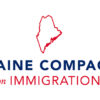Latvian-Born Entrepreneur Hopes to Return to U.S. to Grow Company
Date: August 23, 2016
Peteris Krumins is the co-founder and CEO of Browserling, a software company that lets web developers test new apps and websites across multiple browsers at once. Krumins founded Browserling while in the San Francisco Bay Area on a tourist visa and is currently forced to run the company from his home country, Latvia. Without obtaining a special visa for immigrants with extraordinary abilities, he won’t be allowed to return to America.
Peteris Krumins has been fascinated by computers for as long as he can remember. “As a child, I would spend literally all my time tinkering with hardware and software,” he says. By age 15, he’d already been hired as a professional computer programmer in his native Latvia.
At 25, Krumins decided to turn his passion into a business and, along with a friend, founded Browserling, a software company that helps web developers test new apps and websites across multiple browsers at once. “Before Browserling, developers had to download every single browser and operating system to make sure their software worked equally well on all of them,” Krumins explains. “Browserling provides a single platform for them to do so, saving a lot of time.”
Today, Krumins runs Browserling as the company’s CEO. But he’s had to do so remotely—from Latvia. “I started Browserling in the San Francisco Bay Area on a tourist visa,” Krumins explains, “but as soon as I did, I no longer qualified as a tourist and had to leave the country.” Krumins returned home to Latvia in 2011 and has not been able to return to the United States since. “It’s been a nightmare,” he says emphatically, adding that it is “unbelievable” that the United States doesn’t have a visa specifically for immigrant entrepreneurs.
Krumins considered applying for an E-2 visa, which allows foreign individuals to work here for a business in which they have invested. But that investment—$50,000—is prohibitively expensive for him. His last option is an O-1 visa, a category designated for individuals with “extraordinary ability.”
While hopeful, Krumins says he is also trying to stay realistic. “The O-1 is an incredibly competitive visa with a complicated application process,” he says. “My lawyer told me that the required documentation can run up to 500 pages long—including eight recommendation letters that must be written in a specific format.”
While he pulls together his application, Krumins has no choice but to run his startup from abroad. “Running a company remotely has been incredibly challenging,” he says. Krumins is unable to fully engage in the San Jose-based entrepreneur network, Hackers and Founders, where he also serves as a “Hacker in Residence,” offering advice to budding startups. “I’m missing out on trainings and networking opportunities that would help me grow my company,” he says. “I use Skype a lot, but it’s just not the same as meeting in person.” In addition, the hours are grueling. “The time difference between Latvia and California means I need to be awake and working all night.”
Additionally, not being in the United States presents challenges for gaining first access to the latest technology. “Let’s say Apple releases a new MacOS version that only works on their latest hardware,” he explains. “I have to wait at least a few weeks until I can buy this new hardware in Latvia. My U.S. competitors can just buy it on the release date and deliver the new OS version to their customers several weeks or even months before I can do it. This has been a huge growth-limiting factor.”
Despite these hurdles, Browserling has had impressive success. “We started getting customers from day one,” Krumins says. Since 2011, the company’s user base has grown to 16,000, with customers that include England’s National Health System and the company itself has almost doubled in size in the past year. Still, Krumins dreams of opening a brick-and-mortar office in the Bay Area, where he says he would hire local workers. “It’s so easy to find incredible talent there,” he says. “That’s part of the reason I’m so eager to move back.” He estimates that, had he been able to return to the United States, his company would now be at least four times its current size.
In the meantime, Krumins will continue to run his company remotely. “It’s frustrating,” he says, “but it’s the only option I have.”
This story appears as part of New American Economy’s Reason for Reform campaign, which features hundreds of stories from individuals around the country sharing their reasons for immigration reform. To give your reason, learn more about the project here.


